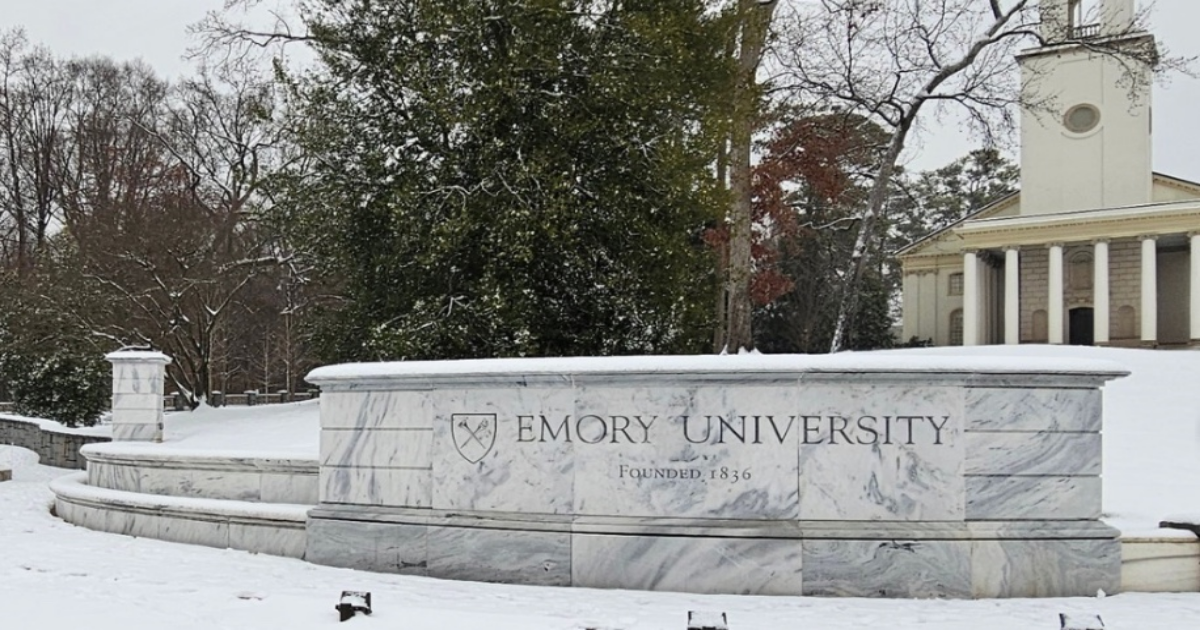When 28-year-old Umaymah Mohammad gave an interview to Democracy Now! during the student encampment for Gaza at Emory University in 2024, she believed, like any other student enrolled there, that she was protected by the institution’s policy on free expression.
But according to a report in The Guardian published on Monday, Mohammad – who is obtaining a sociology PhD and a medical degree at the same time – was suspended seven months later.
In that interview, Mohammad referred to, but did not name, a professor among the medical faculty who had returned from being a volunteer medic for the Israeli forces, in effect questioning how the university can reconcile the professor’s academic position with his role in an army that had killed tens of thousands of civilians in Gaza.
The professor “participated in aiding and abetting a genocide, in aiding and abetting the destruction of the healthcare system in Gaza and the murder of over 400 healthcare workers, and is now back at Emory so-called ‘teaching’ medical students and residents how to take care of patients”, Mohammad said.
The professor filed a complaint, saying he did not feel safe, and demanded that the university investigate Mohammad.
At that point, in April, Emory had already made headlines around the country for its swift and violent crackdown on pro-Palestine student protests, with police using stun guns, tear gas grenades, and rubber bullets on campus.
In July, the university said it found Mohammad had violated the medical school’s code of conduct because she disparaged an individual in her television interview.
A number of people interjected, including Ilya Nemenman, the chair of Emory’s committee for open expression, and George Shepherd, a law professor and president of Emory’s faculty senate.
But an associate dean at Emory insisted that Mohammad either accept the investigation’s results and face the consequences or attend a hearing in November.
That event, she later told The Guardian, was “one of the most dehumanizing two hours of my life”.
Three people – the professor in question, another dean who also complained about her, and the professor’s faculty advisor – all demanded that Mohammad never be allowed to practise medicine.
The advisor, in particular, at one point screamed, “Who are you to decide what’s a genocide?” Mohammad recounted to The Guardian.
A week later, Mohammad was suspended from Emory’s medical school for a year, but she is far from alone in facing such action for speaking up about the Palestinians.
Detentions
Just this month alone, a renowned Iranian professor of international law was barred from Yale University because a pro-Israeli, AI-powered website alleged she was linked to a terrorist group.
Badar Khan Suri, an Indian national and post-doctoral fellow working at the Alwaleed Bin Talal Center for Muslim-Christian Understanding at Georgetown University, was detained by US customs agents.
His bio said that he was working on a project that examined the “potential causes that hinder cooperation among religiously diverse societies and possibilities to overcome those hindrances”.
The Department of Homeland Security (DHS) did not respond directly to questions from Middle East Eye on Suri’s detention for an earlier article but instead sent a statement in which it accused Suri of “actively spreading Hamas propaganda and promoting antisemitism on social media”.
 US judge says Palestinian activist Mahmoud Khalil will remain in US for now
US judge says Palestinian activist Mahmoud Khalil will remain in US for now
“Suri has close connections to a known or suspected terrorist, who is a senior advisor to Hamas. The Secretary of State issued a determination on March 15, 2025 that Suri’s activities and presence in the United States rendered him deportable,” the statement sent to MEE read.
The DHS did not provide any evidence or online reference to its claims.
Suri’s arrest has prompted outrage amongst his colleagues, who describe him as “a respected academic and scholar”.
Mahmoud Khalil, a Palestinian activist, green card holder and recent graduate of Columbia University, was denied protection by university administrators after he complained of threats to his livelihood and family. Like Suri, he was later picked up before being entered into government records as a detainee in Louisiana, where Suri is also now being held.
A judge last week ordered that Khalil must remain in the US for now and did not grant the government a motion to dismiss Khalil’s case against them for wrongful arrest. The government is seeking to have Khalil’s case take place in Louisiana, but the judge ordered that it be heard in New Jersey.
